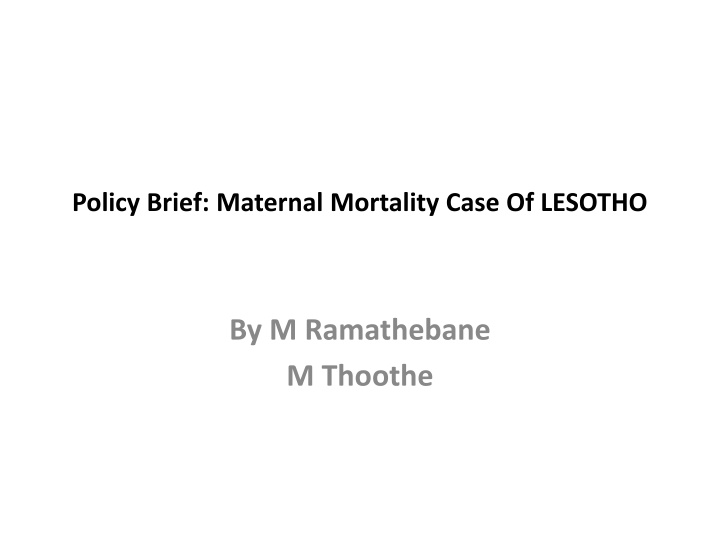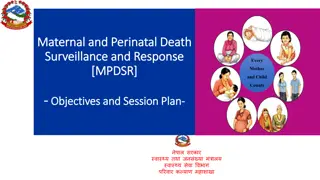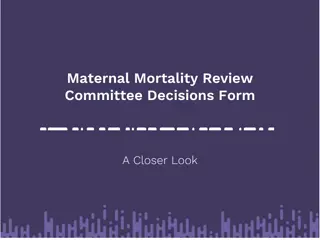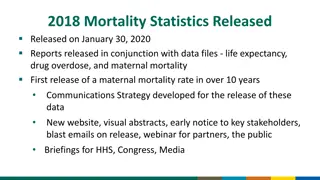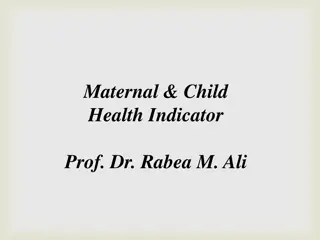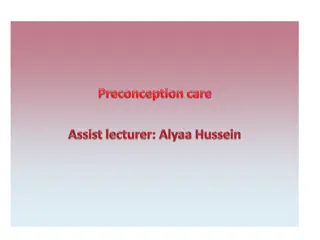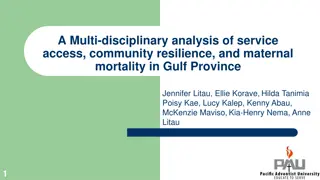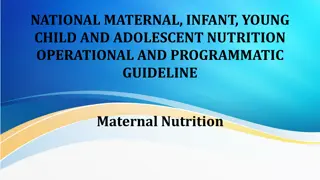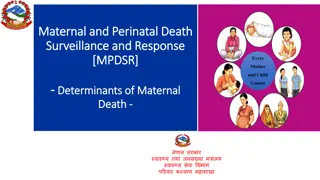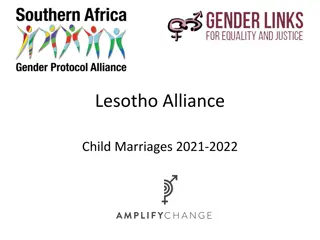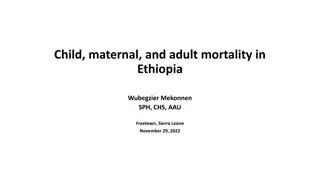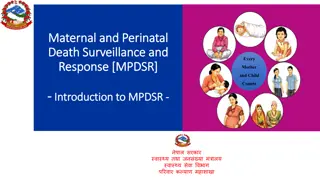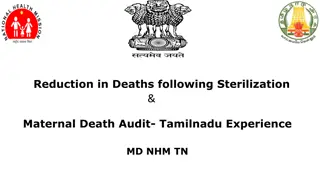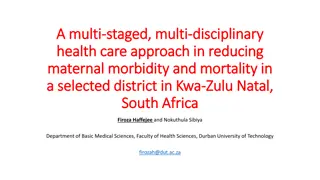Addressing Maternal Mortality in Lesotho: A Call to Action
Maternal mortality remains a significant challenge in Lesotho, with 720 deaths per 100,000 live births. This has detrimental effects on families, women's health, and the economy. Key issues include medical, socio-economic, and cultural factors, such as HIV/AIDS, lack of access to health services, and traditional practices. Recommendations focus on improving facility-based deliveries, addressing contributing factors like poverty, and enhancing policy implementation. Key stakeholders, including government ministries and community organizations, are urged to collaborate for effective solutions.
Download Presentation

Please find below an Image/Link to download the presentation.
The content on the website is provided AS IS for your information and personal use only. It may not be sold, licensed, or shared on other websites without obtaining consent from the author.If you encounter any issues during the download, it is possible that the publisher has removed the file from their server.
You are allowed to download the files provided on this website for personal or commercial use, subject to the condition that they are used lawfully. All files are the property of their respective owners.
The content on the website is provided AS IS for your information and personal use only. It may not be sold, licensed, or shared on other websites without obtaining consent from the author.
E N D
Presentation Transcript
Policy Brief: Maternal Mortality Case Of LESOTHO By M Ramathebane M Thoothe
Maternal mortality is high in the country at about 720 deaths per 100,000 live births, this is having a negative impact on the family life, health of the women, increase in number of orphaned children including economy of the country. The goal is to reduce maternal mortality and to improve access to health facilities. Encourage facility based deliveries. Mayor is requested to lead multi-sectoral approach for reduction of maternal mortality.
Issues of concern Medical causes: HIV/AIDS Pregnancy Induced Hypertension Bleeding During pregnancy, labour And After Delivery Multiple Pregnancies Socio-economic causes Behaviour Access to health services Transport Finance Health systems Cultural causes: Beliefs Practices
Contributing Factors Some of the contributing factors are: Poverty Traditional and cultural practices Home deliveries at about 4 out of 10. Lack of infrastructure (roads, poor housing, lack of safe water and sanitation, electricity, etc.) Low opinion about unfriendly health services.
Policy We have good policies that address primarily the biomedical issues to be dealt with at health facilities, however they fail to adequately address socio-economic and cultural issues to pregnant women. there is poor implementation and enforcement of these existing policies/guidelines such as the Antenatal care guidelines.
Recommendations Some of these deaths could be prevented If delivery occurred in the health facilities under skilled health providers Proper information is passed on Building of proper road for ease of access to health facilities We therefore, request your leadership and intervention involving relevant sectors to tackle this challenge
Key Stakeholders Min. of Transportation Roads Agency Social development Infrastructure Emergency services Community Development Min. of education Traditional healers NGO S and CBO S Health Community structures
Health Argument Medical causes: Failure for a pregnant to attend antenatal clinics may have impact to the mother and child Socio-economic Failure to reach the health facilities on time may result in death of the mother and child Cultural women belief in attending clinic in the later stage to prevent from be-witched Taking traditional medicines to fasten labour process
Health to other-sector argument All sectors involved with clear action plan and task allocation to address and give solutions to the problem
Health to societal goal argument Health Education Empowerment Social relieve
ECONOMIC EVIDENCE Economic Burden: Orphans Decreased number of workforce
EVIDENCE DHS NSDP States that the death of pregnant women should be reduced to below currently the 480/100 000 country is standing at 720/100 000 Evidence is collected through manual data collection, Trend analysis
Policy Strengths brief Point form National Concern Require Multi-sectoral Collaboration Clear targets Weaknesses Inadequate time Too much literature Information /topic broad inadequate Skills Inadequate Leadership
Final Decision Since the country did not meet the target led to the National requested to identify the gaps: In terms of Existing policies Inputs Processes outputs
